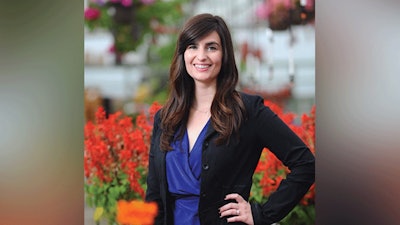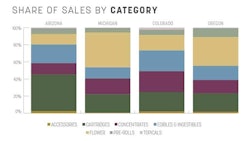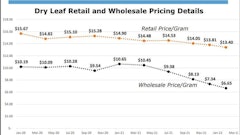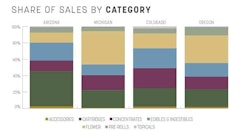

When a new state legalizes adult-use cannabis sales and begins to issue licenses to rollout its program, cannabis companies understandably want to be among the first to establish a footprint in the market. Competition is fierce.
Creating opportunities and space for social equity businesses and small operators has been a challenge in many states, and New Jersey and New York, which are in the middle of launching and refining their adult-use markets and the focus of this month’s cover story, are building a regulatory structure to level the playing field for local applicants and communities most impacted by the war on drugs.
As one example, New Jersey has established a microbusiness program for cultivators, retailers, manufacturers, distributors, and delivery services to encourage small business owners in the state to participate in and fuel a craft industry. While there are no caps on the number of licenses specified for this class type, cultivation company owners, who must have ties to New Jersey, are limited to 2,500 square feet of plant canopy and no more than 10 employees. Because the program is tiered, smaller businesses do not have to compete with larger operations for a license.
New York is launching its adult-use program starting with hemp growers and social equity applicants to give smaller farmers and businesses that have faced financial and legal barriers a head start in a market projected to be the second-largest in the U.S., behind California. So far, more than 50 hemp farmers have received conditional cultivation licenses and can start growing up to 1 acre of flowering canopy outdoors, or 25,000 square feet in a greenhouse (with up to 20 grow lights). Or, they can grow both outdoors and in greenhouse grows "with a maximum total canopy of 30,000 square feet as long as greenhouse flowering canopy remains under 20,000 square feet," according to a press release about the conditional-use cultivation bill. The goal of giving as many operators as possible a foothold to jumpstart the market without creating an oversupply. Rules and regulations for other cultivation businesses are forthcoming.
New York’s Office of Cannabis Management and Cannabis Control Board will issue conditional adult-use retail dispensary licenses first to social equity applicants, and is proposing $200 million in loans—to be funded through licensing fees and private equity funds—to provide operators with capital, which is often the biggest challenge new owners face.
“The focus on distressed CBD Hemp farmers for the new cultivation licenses, as well as the conditional retail license for justice-involved applicants, that really is a true mark of the Office of Cannabis Management’s commitment to lead the implementation of a whole new industry with two categories of people who’ve obviously been hurt trying to enter into the space,” says Wei Hu, founding partner of MRTA Law, a New York cannabis law firm that represents clients on cannabis conviction and expungement, and counsels clients on the adult-use licensing process. “And now they’re the ones finally benefiting from the social justice and economic equity aspect of this new law.”

This article has been updated to clarify the options for New York hemp growers to grow in greenhouses as well as outdoors.






















